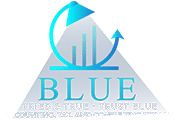Coronavirus (COVID-19) Legislation—Businesses
Recent legislation, such as the Families First Coronavirus Response Act and the Coronavirus, Aid, Relief, and Eco- nomic Security (CARES) Act has provided some financial and tax relief for certain taxpayers. The following is a sum- mary of some of the provision
Filing and Payment Deadline
The April 15, 2020 due date for a C corporation federal in- come tax return or payment is automatically postponed to July 15, 2020. Because the postponed deadline is automatic, no extension is required to be filed. No interest or penalty will accrue until July 16, 2020. There is no limitation on the amount of payment due that can be postponed to July 15.
Note: The postponed deadline does not apply to partner- ship or S corporation income tax returns due on March 15, 2020.
Estimated tax. First quarter estimated tax payments usu- ally due April 15 and second quarter estimated tax pay- ments due June 15 are postponed to July 15.
State tax returns. Most states have also extended certain filing and payment deadlines, but some states have imple- mented different due dates or not conformed. Be sure to confirm with each state for the most updated information.
Paid Sick Leave and Family and Medical Leave
All employers with fewer than 500 employees must provide an employee with paid sick leave and expanded family and medical leave, subject to certain conditions and limitation, to the extent the employee is unable to work (or telework) because of COVID-19-related circumstances, which includes if:
• The employee is ill and subject to quarantine, or advised to self-quarantine, or seeking medical diagnosis, or
• The employee is caring for an individual who is ill and subject to quarantine, or caring for a son or daughter whose school is closed or whose childcare provider is unavailable.
The paid leave provisions are effective April 1, 2020, and apply to leave taken between April 1, 2020, and December 31, 2020.
Small business exemption. There is a small business ex- emption for a business with fewer than 50 employees, if pro- viding childcare-related paid sick leave and expanded fam- ily and medical leave would jeopardize the viability of the business as a going concern.
Payroll credit for required paid sick leave. An employer is allowed a credit against the payroll tax imposed on the employer for each calendar quarter in an amount equal to 100% of the qualified sick leave wages paid by the employer during the calendar quarter, subject to certain limitations.
Credit for certain self-employed individuals. An eligible self-employed individual is allowed a refundable tax cred- it for the 2020 tax year for a qualified sick leave equivalent amount.
Employee Retention Credit
A refundable payroll tax credit is available for 50% of wages paid by employers to employees during the COVID-19 cri- sis. The credit is available to employers whose:
• Operations were fully or partially suspended, due to a COVID-19-related shut-down order, or
• Gross receipts declined by more than 50% when compared to the same quarter in the prior year.
The credit is based on qualified wages paid to the employ- ee. For employers with greater than 100 full-time employees, qualified wages are wages paid to employees when they are not providing services due to the COVID-19-related circumstances.
For eligible employers with 100 or fewer full-time employ- ees, all employee wages qualify for the credit, whether the employer is open for business or subject to a shut-down order.
The credit is provided for the first $10,000 of compensation, including health benefits, paid to an eligible employee. The credit is provided for wages paid or incurred from March 13, 2020, through December 31, 2020.
Employers who take covered loans are not eligible for the credit.
Example: Darla’s Deli continues to pay employee Frank his full week’s wages the week of March 30 even though the deli limited store hours during that week due to COVID-19 related circum- stances. Frank’s wages for a full week would normally be $600. Darla’s Deli is eligible for a credit of $300 ($600 × 50%) for the wages paid to Frank during that week.
Payroll Tax Deferral
Employers and self-employed individuals may defer pay- ment of the employer share of Social Security tax they oth- erwise are responsible for paying to the federal govern- ment with respect to their employees. Employers generally are responsible for paying a 6.2% Social Security tax on em- ployee wages. The deferred tax must be paid over the fol- lowing two years, with one-half of the deferred amount re- quired to be paid by December 31, 2021, and the other half by December 31, 2022. This deferral is only for the employer portion of Social Security tax. The employee portion of So- cial Security tax is not deferred. The 1.45% Medicare tax is not deferred for employers or employees.
Qualified Improvement Property
The technical error that has prevented qualified improve- ment property from being treated as 15-year property and eligible for special depreciation has been fixed. This change is retroactive to tax years beginning after December 31, 2017. This change will increase a company’s access to cash flow by allowing it to amend a prior year return, but also in- centivizes it to continue to invest in improvements.
Net Operating Loss (NOL)
A net operating loss (NOL) is subject to an 80% taxable-in- come limitation and cannot be carried back to reduce in- come in a prior tax year. However, under the CARES Act, an NOL arising in a tax year beginning in 2018, 2019, or 2020, can be carried back to each of the five years preceding the year of the loss. In addition, for tax years beginning before January 1, 2021, the 80% taxable income limitation is tem- porarily repealed.
Excess Business Loss Limitation
The CARES Act modifies the loss limitation applicable to pass-through businesses and sole proprietors. Excess busi- ness losses arising in tax years after December 31, 2017 through December 31, 2020 are allowed.
Business Interest Limitation
The 30% business interest limitation is increased to 50% (with adjustments) for 2019 and 2020. This provision will al- low a business to increase liquidity with a reduced cost of capital, so that it is able to continue operations and keep employees on payroll.
Prior Year AMT Credit
Previously, the corporate alternative minimum tax (AMT) was repealed, and corporate AMT credits were made avail- able as refundable credits over several years, ending in 2021. A company can accelerate recovery of those AMT credits, permitting it to claim a refund now and obtain ad- ditional cash flow.
Federal Excise Tax on Alcohol
The federal excise tax is waived on any distilled spirits used for or contained in hand sanitizer that is produced and dis- tributed in a manner consistent with guidance issued by the Food and Drug Administration and is effective for cal- endar year 2020.
This brochure contains general information for taxpayers and should not be relied upon as the only source of authority.
Taxpayers should seek professional tax advice for more information.
Copyright © 2020 Tax Materials, Inc.
All Rights Reserved

